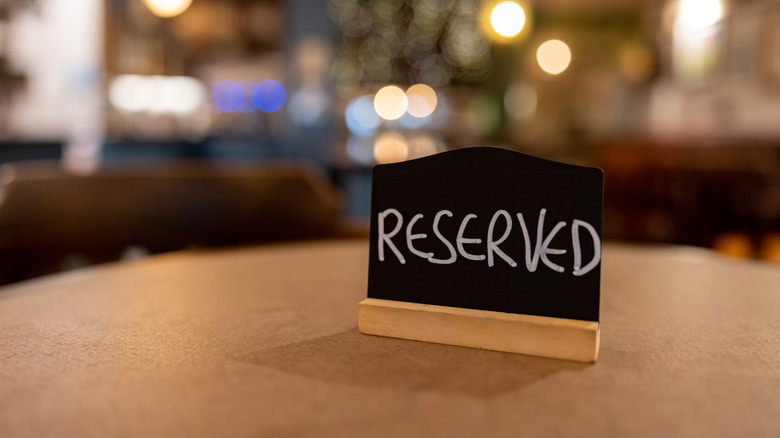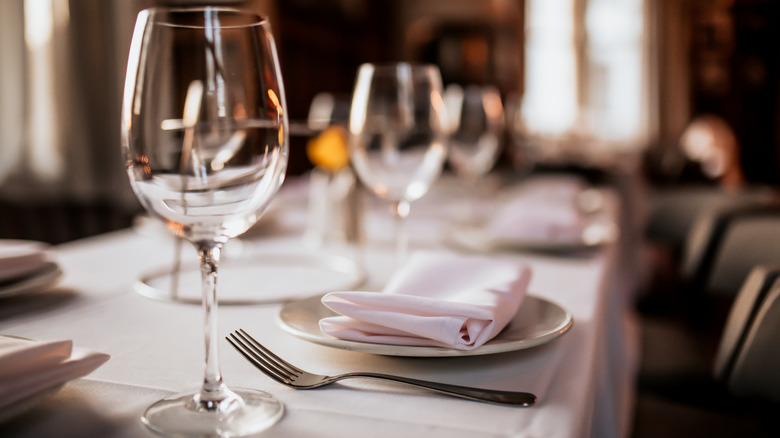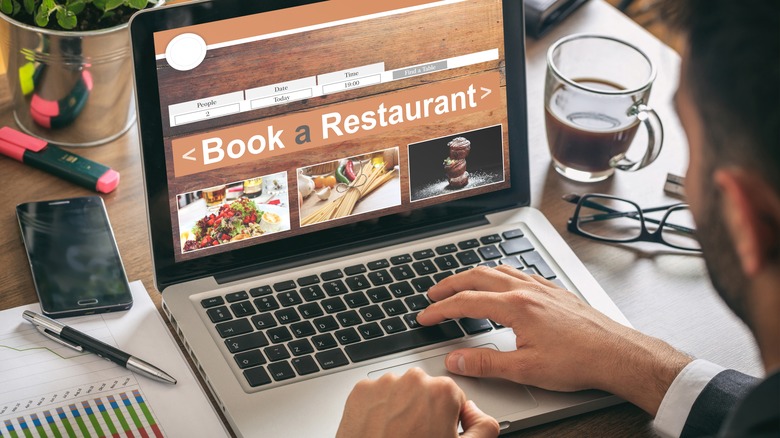Why Restaurants Need To Charge A No-Show Reservation Fee
The next time you book a restaurant reservation, you might be asked to provide payment information to confirm it. While this may leave a bad taste in your mouth for having to pay before you even set foot in the restaurant, let alone look at a menu, this request is entirely reasonable for an industry driven by a lot of customer turnover.
After all, when you make a reservation, the restaurant is agreeing to hold a table for you with the understanding that you will show up and buy food. On the other hand, if you don't show up, the restaurant has kept a table empty during the best seating times when that space could have been used to accommodate other diners.
Sure, a reservation fee or no-show fee of about 20% (typically between $10 and $50 per person in your party) won't make up for lost revenue, especially when you consider the billions of dollars lost each year, according to restaurant industry platform SevenRooms, but these fees may make customers think twice before backing out at the last second. Besides, many restaurants even refund you or apply the reservation deposit to your bill when you do show up, so these fees aren't necessarily extra.
What if you can't make your dinner reservation?
It's totally understandable that sometimes you can't make your restaurant reservation. In fact, 28% of Americans each year don't, according to OpenTable data. That being said, whether or not you paid a reservation fee, there's a certain etiquette that is good to follow when your plans change.
Most obviously, you should avoid no-call, no-show situations because these result in everyone losing money. Instead, if you're able to, contact the restaurant to let staff know they can give away your table to someone looking for last-minute reservations. Some restaurants might even have a cancellation window of 24-48 hours prior to your reservation, allowing you to back out without being charged an additional no-show fee if you do so in that time period.
A good rule of thumb is to always check a restaurant's reservation policies before booking online, as fees and allowable cancellation periods will vary from one restaurant to the next. If you're unsure, contact the restaurant for clarification, as they might even be able to reschedule your reservation to another date that works better.
Be careful where you book a restaurant reservation
Interestingly, another trigger for restaurants needing to impose reservation and no-show fees is the increasing activity of bots and scalping. Bots can easily scoop up online reservations, leaving restaurants inexplicably empty at prime times. Instating a fee, however, can help differentiate bots from living, breathing customers who actually do want to show up.
Scalping, on the other hand, is when sites auction off existing (or nonexistent) reservations at high-end restaurants. In some cases, these reservations were made by someone who later determined they couldn't make it and didn't want to pay a cancellation or no-show fee. Though it seems harmless enough to give the reservation away, customers on scalping sites might spend hundreds of dollars on a bid for a particular restaurant reservation, only to find out later that the reservation was never actually booked.
In other words, your best bet is always to book through a restaurant's own website, as opposed to a third-party site. Even better, call the restaurant and set up your reservation the good old-fashioned way to guarantee it.



